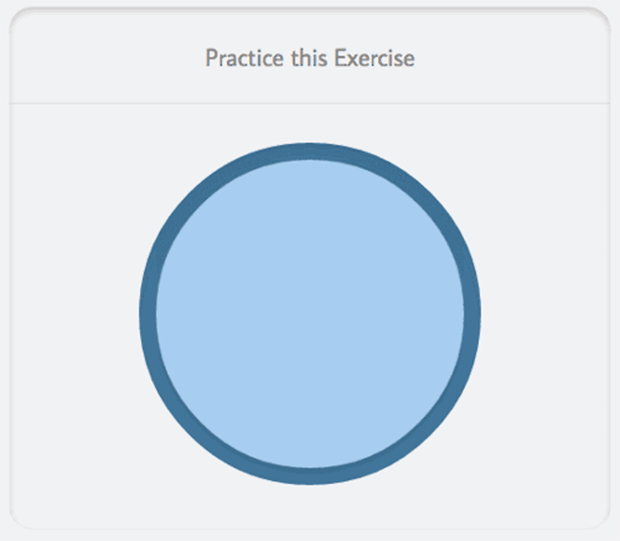The natural world around us undergoes a remarkable transformation as the vibrant hues of summer give way to the warm, earthy tones of autumn. Leaves fall, temperatures drop, and the days shorten. While many find solace in the cozy atmosphere and the promise of pumpkin-spiced everything, for others, this seasonal shift goes hand in hand with an emotional transition.
For men in the United Kingdom aged between 25 and 35, the onset of autumn can present a unique set of challenges to their mental health. In this comprehensive blog post, we embark on a journey to explore the profound significance of men’s mental health during this distinct season. We’ll then unravel the myriad benefits that counseling offers as an invaluable resource for addressing the autumn blues head-on.
Prioritising Mental Health: A Vital Undertaking
Central to our discourse is the unequivocal importance of placing mental health on the same pedestal as physical well-being. In truth, mental health should always be considered as significant as one’s physical health. However, the issue often arises from the challenge of recognising and acknowledging one’s mental health concerns. Thia ia a challenge that looms prominently, particularly for men.
In this context, it’s crucial to acknowledge how societal expectations and entrenched stereotypes have played a role in perpetuating the notion that men should embody stoicism and unwavering resolve in the face of emotional turmoil. These deeply ingrained beliefs can make it profoundly challenging for men to break free from these constraints. With the knock on effect being they are unable to express their innermost feelings openly, and, most importantly, seek help when needed.
The Seasonal Struggle: Unpacking the Autumnal Impact
Autumn gracefully descends upon us, ushering in shorter days and longer nights, as nature readies itself for the approaching winter. This seasonal shift can cast a shadow over the emotional landscape of many individuals. As feelings of melancholy and fatigue take center stage. This phenomenon is often termed Seasonal Affective Disorder (SAD), and during this season, it emerges as an unwelcome companion for numerous souls.
Counselling for men
It’s worth noting that SAD does not discriminate; it affects people of all genders, ages, and backgrounds. Yet, it’s vital to recognise that men, in particular, may face unique challenges in identifying and addressing its symptoms. The societal expectation for men to remain emotionally steadfast can lead them to dismiss or downplay these feelings. Often attributing them to transient, external factors rather than recognising the internal struggles they may be facing.
In this light, we unveil the intricate connection between the societal expectations placed upon men and their ability to navigate the shifting emotional terrain of autumn. The Autumnal Impact, as we refer to it here, serves as a reminder of the imperative need for open dialogues around men’s mental health, transcending stereotypes and forging paths toward emotional well-being.
The Significance of Counseling for Men During Autumn
Breaking the Stigma: A Crucial Step Towards Well-being
One of the primary reasons counselling holds exceptional significance in the context of men’s mental health is its pivotal role in dismantling the pervasive stigma that surrounds emotional expression and seeking help. Counselling stands as a beacon of hope, offering a safe and confidential sanctuary where men can candidly unravel their thoughts and emotions. Men can be liberated from the shackles of judgment or societal expectations. Within these therapeutic spaces, a transformative environment thrives. One that challenges conventional gender roles and empowers men to wholeheartedly embrace their emotional well-being.
Building an Emotional Toolbox: Equipping for the Season
Autumn, with its inherent beauty, also ushers in a unique set of emotional challenges. It’s during this season that the autumn blues can descend, casting shadows of stress, anxiety, or even depression. Counseling, like a seasoned guide, provides individuals with a treasure trove of invaluable tools, honed through years of therapeutic expertise. These tools, when wielded with care, enable men to navigate the intricate labyrinth of their emotions with grace and resilience. In the midst of the autumnal tempest, these coping strategies become not just beneficial but essential, offering a lifeline in moments of emotional turbulence.
“There is nothing impossible to they who will try.”
Alexander the Great
Preventative Care: Nurturing Mental Well-being
Much like routine visits to a physician for physical check-ups, counseling emerges as a form of preventive care for mental health. Regular counseling sessions serve as vigilant sentinels, discerning and addressing latent concerns before they can evolve into more severe conditions. This proactive approach stands as a testament to your commitment to self-care—a dedication that ensures not just a healthier and happier you during the autumn season but also a more robust emotional well-being that reverberates throughout the entire year.
In essence, the significance of counseling during autumn transcends mere words; it is an embodiment of empowerment, resilience, and self-compassion. It extends a helping hand through the swirling tempest of the autumn blues, enabling men to steer their emotional ship with unwavering confidence. It’s a commitment to self-discovery, a refusal to be bound by stereotypes, and a pledge to embrace emotional well-being unreservedly. Amidst the rustling leaves and changing seasons, counseling emerges as a steadfast companion, offering solace and strength as you navigate the profound landscape of your emotions.
Taking the First Steps: Your Path to Men’s Mental Health in Autumn
For those men in the United Kingdom, aged 25 to 35, who are contemplating seeking counseling to bolster their mental health during the autumn season, embarking on this journey is a commendable act of self-care and resilience. Here, we provide you with practical guidance to initiate this transformative process:
1. Professional Guidance: Navigating with Expertise
Your first step towards embracing counselling is reaching out to a counsellor who specialises in men’s mental health. These seasoned experts possess a deep understanding of the unique challenges men often face when it comes to their emotional well-being. By seeking their guidance, you embark on a journey that is tailored to your specific needs and challenges. Through their expertise, you’ll find a compass to navigate the intricate terrain of your emotions.

2. Seek Recommendations: Trust in Personal Referrals
Don’t underestimate the power of personal recommendations. Trust in the experiences and insights of friends, family, or trusted individuals who have embarked on a similar journey. They can offer valuable referrals to experienced and empathetic counselors skilled in addressing men’s mental health concerns. It’s a testament to the strength of community and the support network that surrounds you.
3. Online Resources: Harnessing the Digital Frontier
In today’s interconnected world, a wealth of mental health resources is at your fingertips. Explore online platforms and resources that not only provide valuable mental health information but also offer options for virtual counselling sessions. This can be particularly advantageous during the autumn season when the inclination to stay indoors prevails. The digital realm extends a convenient avenue for seeking the support you need, irrespective of physical boundaries.
4. Embrace Self-Care: A Holistic Approach
Counselling, while invaluable, is but one facet of your journey towards enhanced mental well-being. In conjunction with seeking professional help, consider the incorporation of self-care practices into your daily routine. Simple habits like regular exercise, maintaining a balanced diet, and engaging in mindfulness activities wield the potential for a profoundly positive impact on your mental health. These practices become your allies as you navigate the intricacies of the autumn blues, fostering a more robust emotional resilience.
Counselling for men
In summation, embarking on the path to men’s mental health during the autumn season is a testament to your commitment to self-discovery, self-compassion, and well-being. It is an investment in a healthier and happier you, not just for this season but for the seasons that follow. By taking these first steps, you not only unlock the potential for personal transformation but also contribute to the broader narrative surrounding men’s mental health—ushering in an era where emotional well-being is celebrated, and stereotypes are replaced with authentic expressions of self.
In Conclusion: Embracing the Seasonal Shift for Holistic Well-being
In summation, let us recognise that autumn transcends being merely a season of change in the natural world; it offers an exquisite opportunity for personal transformation and profound self-reflection. For men aged 25 to 35 residing in the United Kingdom, acknowledging the distinctive mental health challenges that accompany this season is a pivotal stride towards nurturing holistic well-being.
Embracing counselling as an invaluable resource for addressing the autumn blues signifies an act of profound self-compassion, resilience, and unwavering strength. It is not a fleeting choice but a resolute commitment to cultivating a happier, healthier version of oneself. This commitment that extends far beyond the confines of this particular season. By taking this path, you embark on a journey that celebrates emotional well-being, challenges stereotypes, and champions authenticity. A journey where each season becomes an opportunity for growth, transformation, and the unwavering pursuit of a more fulfilling, vibrant life.



























